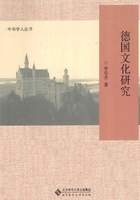Prince di Bergezi had won the beautiful English woman. He had followed her to Greenoke and repeated his question. There was neither coquetry nor affectation in Valentine--she had thought the matter over, and decided that she was never likely to meet with any one else she liked and respected so much as her Italian lover. He had the virtues, without the faults, of the children of the South; a lavishly generous, princely disposition; well-cultivated artistic tastes; good principles and a chivalrous sense of honor. Perhaps the thing that touched her most was his great love for her. In many respects he resembled Ronald Earle more nearly than any one else she had ever met.
To the intense delight of both parents, Miss Charteris accepted him. For her sake the prince consented to spend every alternate year in England.
Three times had the whole country side welcomed the stately Italian and his beautiful wife. This was their fourth visit to England, and, when the princess heard from Lady Charteris that Ronald's two daughters, whom she remembered as little babes, were at Earlescourt, nothing would satisfy her but a visit there.
The young girls looked in admiring wonder at the lady. They had never seen any one so dazzling or so bright. The calm, grand, Grecian face had gained in beauty; the magnificent head, with its wealth of golden hair, the tall, stately figure, charmed them.
And when Valentine took them in her arms and kissed them her thoughts went back to the white, wild face in the garden and the dark eyes that had flamed in hot anger upon her.
"I knew your mother years ago," she said; "has she never mentioned my name? I used to nurse you both in the little villa at Florence. I was one of your father's oldest friends."
No, they had never heard her name; and Beatrice wondered that her mother could have known and forgotten one so beautiful as the princess.
The week she remained passed like a long, bright dream. Beatrice almost worshiped Valentine; this was what she had dreamed of long ago; this was one of the ideal ladies living in the bright, gay world she was learning to understand.
When the prince and princess left Earlescourt they made Lady Helena promise that Beatrice and Lillian should visit them at Florence. They spoke of the fair and coquettish Countess Rosali, still a reigning belle, and said how warmly she would welcome them for their father's sake.
"You talk so much of Italy," said Valentine to Beatrice. "It is just the land for the romance you love. You shall see blue skies and sunny seas, vines, and myrtles, and orange trees in bloom; you shall see such luxuriance and beauty that you will never wish to return to this cold, dreary England."
It was thus arranged that, when Lord Earle returned, the visit should be paid. The evening after their guests' departure seemed long and triste.
"I will write to mamma," said Beatrice; "it is strange she never told us anything of her friend. I must tell her all about the visit."
Not daring to ask the girls to keep any secret from Dora, Lady Earle was obliged to let the letter go. The passionate, lonely heart brooded over every word. Beatrice dwelt with loving admiration on the calm, grand beauty of the princess, her sweet and gracious manner, her kindly recollection of Dora, and her urgent invitation to them. Dora read it through calmly, each word stabbing her with cruel pain. The old, fierce jealousy rose in her heart, crushing every gentle thought. She tore the letter, so full of Valentine, into a thousand shreds.
"She drew my husband from me," she cried, "with the miserable beauty of her fair face, and now she will win my children."
Then across the fierce tempest of jealous anger came one thought like a ray of light. Valentine was married; she had married the wealthy, powerful prince who had been Ronald's patron; so that, after all, even if she had lured Ronald from her, he had not cared for her, or she had soon ceased to care for him.
Beatrice thought it still more strange when her mother's reply to that long, enthusiastic letter came. Dora said simply that she had never named the Princess di Borgesi because she was a person whom she did not care to remember.
Fifteen months passed, and at length came a letter from Lord Earle, saying that he hoped to reach England before Christmas, and in any case would be with them by Christmas day. It was a short letter, written in the hurry of traveling; the words that touched his children most, were "I am glad you have the girls at Earlescourt; I am anxious to see what they are like. Make them happy, mother; let hem have all they want; and, if it be possible, after my long neglect, teach them to love me."
The letter contained no mention of their mother; no allusion was made to her. The girls marked the weeks go by in some little trepidation. What if, after all, this father, whom they did not remember, should not like them: Beatrice did not think such a thing very probable, but Lillian passed many an hour in nervous, fanciful alarm.
It was strange how completely all the old life had died away.
Both had felt a kind of affection for the homely farmer and his wife--they sent many presents to them--but Beatrice would curl her proud lip in scorn when she read aloud that "Mr. And Mrs.
Thorne desired their humble duty to Lady Earle."
Lady Earle felt no anxiety about her son's return; looking at his daughters, she saw no fault in them. Beautiful, accomplished, and graceful, what more could he desire? She inwardly thanked Providence that neither of them bore the least resemblance to the Thornes. Beatrice looked like one of the Ladies Earle just stepped out from a picture; Lillian, in her fair, dove-like loveliness, was quite as charming. What would Lady Earle--so truthful, so honorable--have thought or said had she known that their bright favorite with the Earle face had plighted her troth, unknown to any one, to the captain of a trading vessel, who was to claim her in two years for his wife?
Lady Earl had formed her own plans for Beatrice; she hoped the time would come when she would be Lady Earle of Earlescourt.
Nothing could be more delightful, nothing easier, provided Beatrice would marry the young heir, Lionel Dacre.
One morning, as the sisters sat in Lillian's room, Lady Earle entered with an unusual expression of emotion on her fair, high-bred face. She held an open letter in her hand.
"My dear children," she said, "you must each look your very best this evening. I have a note here--your father will be home tonight."
The calm, proud voice faltered then, and the stately mistress of Earlescourt wept at the thought of her son's return as she had never wept since he left her.















